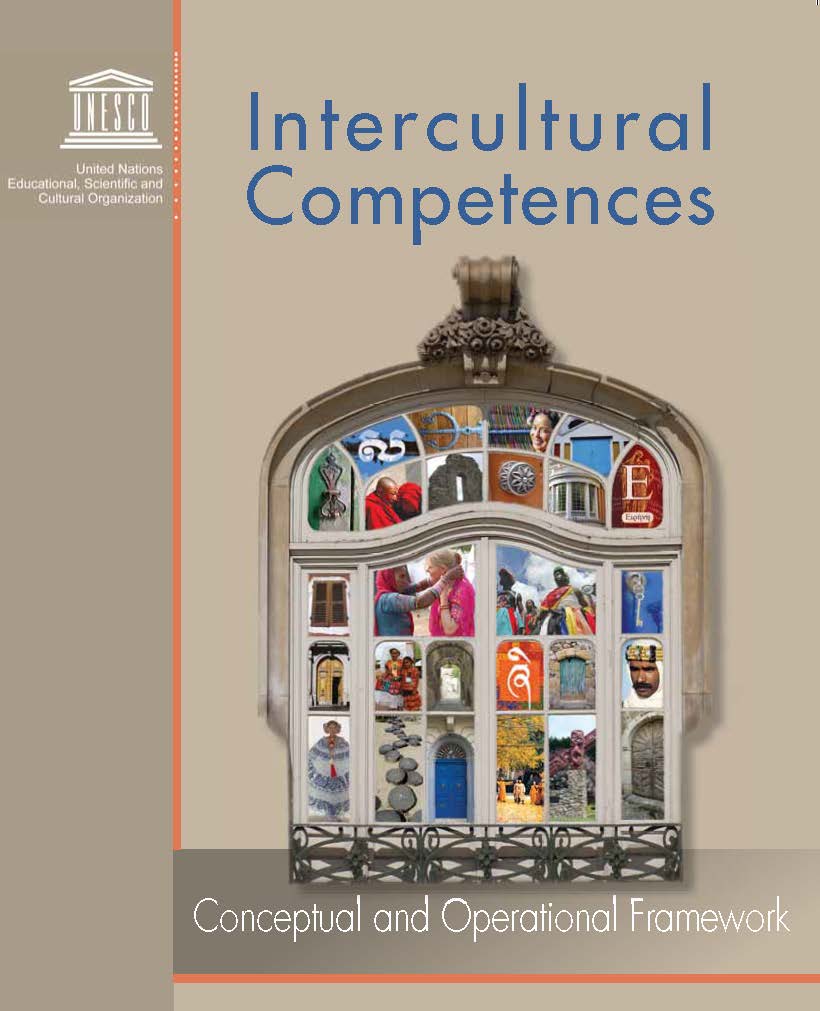Project presentation

Intercultural competences
If one compares the process of intercultural dialogue to the weaving of a tapestry, then intercultural competencies would be its main thread. Having adequate knowledge about one’s cultural environment, receptive attitudes encouraging exchange, and specific skills so as to mobilize both knowledge and attitudes when interacting with diverse others is an indispensable requirement for an open and respectful exchange of views. Intercultural competences empower the participating groups and individuals and enable them to interact with cultural others with a view to bridging differences, diffusing conflicts and setting the foundations of peaceful coexistence.
Drawing upon their conceptual convergence, UNESCO is working to enrich the content of intercultural competences with the principles and values of human rights. This exercise is expected to result in the development of a set of guidelines aimed to mainstream the use of human rights-based intercultural competences in various fields of policy-making. The guidelines are to be accompanied by a training manual to support their implementation. The guidelines and the training manual, intended for a variety of actors and stakeholders, from ministerial officials and planners, to local authorities and youth leaders, are planned to be tentatively tested in 3 pilot countries as entry points (from the MENA region) . All these activities are to be implemented throughout 2013-2014. Within this context, two studies have already been realized. The first explores the meaning of key concepts for the definition of intercultural competences (some already widely accepted, like cultural diversity, cultural identity, intercultural dialogue, universality, others less frequently used, like intercultural literacy, reflexivity, semantic availability and resilience). It further proposes a five-step plan for operationalizing intercultural competences, one of which, such as respect, self-awareness, adaptation, relationship-building and cultural humility, are regarded as the basic minimum requirements for holding intercultural dialogue. The second study sheds light on specific rights, for instance the right to education, the right to take part in cultural life, the right to freedom of opinion and expression, and their input to construing and sharpening intercultural competences.

From Words to Action, Port-folio on intercultural competences based on Human rights
Which skills should be mobilized or acquired in order to be able not only to respect but also to appreciate the Other in all his or her diversity. How many of these skills can be useful on both a collective level and an individual one in order to protect cultural rights, protect oneself from, or to transcend prejudice? Intercultural sensibility and aptitudes have to be explored since they refer to the willingness and capacity of people to step outside of their own logic and systems of thought in order to engage with others, and appreciate different cultural narratives especially if they are not equally valorized or recognized in a given societal context. This portfolio proposes a basic tool for capacity building in support of exchange, communication and cooperation beyond cultural, religious and national borders, allowing the emergence of a global citizenship in a safer world for all. In this perspective, this set of key resources consists of papers by international experts exploring the linkage between respect for cultural diversity and human rights, with all that that implies. It brings together other publications such as Intercultural Competences, Conceptual and Operational Framework, published by UNESCO in 2013, and documents such as Dire la Tolérance (Defining Tolerance), published in 1997 and translated into English and into Arabic, and, finally, UNESCO’s Programme of Action for a Culture of Peace and Non-Violence, A Vision in Action, published in English in 2012 and in French in 2013. Symbolically released on 10 December 2014, Human Rights Day, this multilingual and evolving publication is designed primarly to be an Open Access tool, a flagship project of the International Decade for the Rapprochement of Cultures (2013- 2022). In the same spirit, its content will be enriched and developed in an e-learning format, throughout the Decade. This innovative tool is the result of a UNESCO project named: “Building competences to develop policies and programmes for intercultural dialogue respectful of human rights”. It would not have been possible without the financial support of the Danish Government, to which UNESCO expresses its wholehearted gratitude. In short, the main goal of this project is to reinforce capacities of policy actors and decision-makers within national institutions, local authorities and civil society leaders, so to improve policies and programmes on intercultural dialogue and citizenship in conformity with the fundamental principles of human rights. May this tool evolve and be used to serve the ideal enshrined in the Preamble to the Constitution of UNESCO which declares that “since wars begin in the minds of men, it is in the minds of men that the defences of peace must be constructed”.
Open access publication

